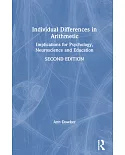New classical economics makes three assumptions to explain economic phenomena. Firstly, people solve their decision problems by following the prescriptions of the expected utility theory.
Secondly, people behave like econometricians in learning the structure of the environment and predicting economic events. And thirdly, the general forms of the laws of economics are the same
in case of the individual and the economy. This book challenges these hypotheses, explaining why the expected utility theory, even if it were true, fails to be of much help in solving
economic controversies. It goes on to demonstrate why there can be no theory of statistical learning and why therefore the proposal that homo economicus behaves like a statistician falls a
long way short of helping us understand the dynamics of the economy. Finally the book brings to the fore the complexities that behavioural heterogeneity and interaction create for the
connection between the micro and macro levels in the economy. These complexities lend strong support to atheoretical macroeconomics.





















